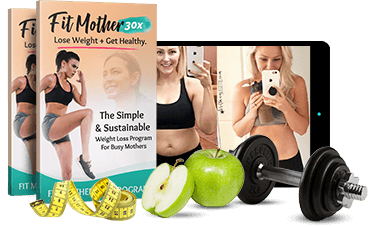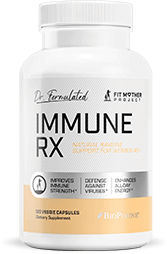Having exceptional family nutrition means your family is healthier, with a lower risk of nutrient deficiencies and medical problems.
But as we all know, that's easier said than done!
It's best to make small changes to your family's current diet plan, a few at a time, until you reach your goals.
Dramatic changes are more difficult to stick with long term.
No family has perfect nutrition, so don't feel like you have to eat entirely clean.
Simply increase the number of healthy foods and drinks you offer your family and educate them about healthy vs. not-so-healthy options.
Don't forget to incorporate other healthy habits, such as daily exercise, plenty of sleep, and stress reduction, into your family's daily routine.
Family nutrition isn't an exact science.
Simply follow the tips below to help everyone in your family eat right while juggling the different nutritional needs and wants of your family members.
Not sure what you're REALLY getting at the grocery store? Learn how to read nutrition information on another level!
10 Ways to Enhance Family Nutrition in Your Home
1. Have Family Members Choose Foods From Each Group
Rather than asking if your family wants to eat fruits or vegetables, ask which fruits and veggies they love the most.
The same holds true for the other food groups (starches, dairy foods, protein foods, and fats).
Use the list below as a guide when asking family members to pick nutritious foods from each group!
Fruits
When exceptional family nutrition is your goal, fruits to consider include apples, bananas, oranges, peaches, pears, watermelon, honeydew melon, cantaloupe, pineapple, or kiwi fruit.
Other great options are mangos, strawberries, raspberries, blueberries, blackberries, grapes, and other fresh or frozen fruits.
You might also choose applesauce (without added sugar), raisins, 100% fruit juice, or smoothies blended with fresh fruit, ice, plus 100% fruit juice, milk, plant milk, or yogurt (along with protein powder if you'd like)!
Non-Starchy Vegetables
Include a wide array of non-starchy vegetables in your family's daily meal plan.
Examples include lettuce, spinach, kale, other leafy greens, broccoli, cauliflower, asparagus, and zucchini.
Additional options include green beans, cucumbers, tomatoes, celery, carrots, bell peppers, mushrooms, onions, and more.
Starches
Starches are an excellent source of carbohydrates and energy.
Encourage family members of all ages to choose from a list of healthy, fiber-rich carbs.
Examples include brown rice, wild rice, quinoa, oatmeal, whole-grain cereals, whole-grain bread, and whole-grain pasta.
They might also choose starchy vegetables, such as sweet potatoes, corn, peas, lentils, black beans, or other dried beans.
Dairy Foods and Equivalents
Ask your spouse and kids which dairy foods, or equivalents, they'd like to add to their nutritious meal plan.
Examples include milk, almond milk, other types of plant milk, Greek yogurt, reduced-fat cheese, cottage cheese, and plain kefir.
Low-sugar protein shakes count too!
Protein Foods
Get input from your spouse and kids when shopping for protein-rich foods to include in meals and snacks.
Examples include very lean organic red meat, chicken, turkey, fish, seafood, and eggs.
Dairy foods are also a good source of protein. So are peas, dried beans, other legumes, nuts, seeds, nut butter, hummus, tofu, and seitan.
Heart-Healthy Fats
Don't forget to add a heart-healthy fat to each meal and most snacks!
Good sources of nutritious fats include avocados, nuts, seeds, nut butter, hummus, and olives.
Cook with olive oil or other plant-based oils and choose condiments (without added sugar) that are made with olive oil whenever possible.
Fit Mother Project is the first sustainable health & weight loss program designed exclusively for busy mothers just like you... FM30X is the first sustainable weight loss program designed exclusively for *busy* mothers like you... JOIN OUR fit
mother
PROGRAM (FM30X)JOIN OUR FIT MOTHER 30X PROGRAM

2. Portion Plates Properly
Portioning your plates in a healthy way, and encouraging other family members to do the same, is an excellent way to maintain exceptional family nutrition.
Aim to fill one-half of each plate of food with non-starchy vegetables, one-fourth of each plate with protein foods, and the remaining one-fourth of your plate with starches.
Add healthy fats to each plate of food and offer three servings of dairy foods or equivalents daily.
Add in fresh fruits 2-3 times daily!
3. Choose Healthy Recipes
Exceptional family nutrition involves choosing fun recipes you can prepare with your entire family!
If you're looking for flavorful, nutritious recipes that meet your family's nutritional needs, turn to the Fit Mother Project for new ideas.
Recruit your spouse and kids to help you with meal prep!
4. Consider Meal Prepping
A busy schedule often limits your time in the kitchen, which might make you and your family more likely to turn to fast food or junk food.
If you have some extra time during the weekend, cook meals for the next few days or the entire week!
Simply cook the meals, let the food cool, and portion meals in airtight containers.
Place them in your refrigerator for up to 3-4 days or in the freezer for several months, depending on the type of food you're freezing.
In just 6-weeks on our FOUNDATIONS Program, you'll transform your health and body, for the rest of your life!Join our 6-Week Program...
You'll Gain Health for Life!
5. Try Meal Delivery Services
Home meal delivery services can save you time in the kitchen and eliminate time spent grocery shopping or driving to the store.
Delivered meals are perfect for busy families who prioritize their health but simply don't have time to spend hours in the kitchen.
Use a list of nutritious home delivery meal services to find one that's right for you and your family.
Doing so means you can have ingredients, along with recipes, or ready-made nutritious meals delivered right to your doorstep!
6. Eat Every Few Hours
It's a good idea to eat healthy meals or snacks every few hours with your family for numerous reasons.
Doing so is a good way to avoid feeling overly hungry and overeating during the next meal.
Eating every few hours keeps you, your spouse, and your kids' energy levels high and reduces the risk of nutritional deficiencies.
You might have breakfast at 7:00 am, a snack at 9:30 am, lunch at noon, an afternoon snack at 2:30, dinner at 5:00 pm, and a snack at 7:30.
You can change up this meal and snack plan to match your schedule and your family's personalized needs.
If you plan to be out and about for the day, pack nutritious on-the-go meals or snacks to avoid going too long without eating!
In just 6-weeks on our FOUNDATIONS Program, you'll transform your health and body, for the rest of your life!Join our 6-Week Program...
You'll Gain Health for Life!
7. Modify Menus for Different Ages
Regardless of the ages of your kids, you can usually modify just about any healthy meal plan for them.
For example, if you have young kids at home, you might simply cut food into small pieces or give kids smaller portions.
You might need to cook fresh veggies to make them softer to avoid choking hazards.
Avoid giving fish high in mercury to kids (choose low-mercury fish instead) and choose a variety of foods from each food group.
Meal planning isn't an exact science.
Simply serve a vegetable or fruit, protein food, fiber-rich starch, and nutritious fat during each meal.
Offer dairy foods or equivalents three times daily and give your family members a say as to which foods from each group they'd like to choose.
8. Don't Forget about Dietary Supplements
Even if you have a well-balanced family nutrition plan, sometimes diets can still lack sufficient vitamins, minerals, or other essential nutrients.
That's why dietary supplements come in handy.
Ask your family doctor which supplements are best for you, your spouse, and your kids.
They could recommend multivitamin supplements, omega-3 fatty acids, probiotics, extra vitamin D, or other supplements that fill in potential nutritional gaps.
Protein powder shakes make nutritious between-meal snacks or even meal replacements. Combine protein powder with water, milk, or plant milk and ice. Blend in fruit, nut butter, oats, nuts, or seeds if you'd like, and enjoy!
As women age, our immune systems get weaker. It’s a fact. After 40, you become more vulnerable to viruses, cancers, and even Alzheimer’s disease. Average women just let this all happen. But now, with Immune Booster RX, you can take the power back.
![]()
The Immune Booster Women 40+ Are Using To Kill Viruses & Feel Younger…

9. Educate Family Members About Healthy vs. Junk Foods
Even at a young age, you can educate your kids about the importance of eating healthy foods (more energy, healthy hair and skin, proper brain development, enhanced sports performance, etc.), as well as which foods are healthy vs. those that are not.
Even the pickiest eaters might be more likely to make nutritious choices if they learn more about the benefits of doing so.
Teach your kids about the different food groups and how to portion their plates properly.
Have them drink water, milk, or plant milk rather than soda, sweet tea, sugar-sweetened energy drinks, and other sugar-sweetened beverages.
Encourage family members to choose whole grains over refined grains and plenty of fruits, vegetables, nuts, seeds, legumes, and other fiber-rich options.
10. Limit Unhealthy Options
You don't have to avoid junk foods entirely to stay healthy but limit them as much as you can.
It's helpful to avoid keeping unhealthy options in your home.
If you do have them around, keep just a few junk foods at home for special occasions.
Limit or avoid white bread, white rice, baked goods, and sweet treats, as well as highly-processed meats (ham, deli meats, sausage, hot dogs, regular bacon, etc.), fried foods, gravies, and other white sauces.
Limit ketchup, sugar-sweetened salad dressings, barbeque sauces, honey mustard, and other sugar-sweetened condiments.
If you drink alcohol, keep it in a safe place in your home where your kids don't have access to it.
Limit drinking occasions to once weekly if possible and avoid more than one alcoholic drink at a time.
In just 6-weeks on our FOUNDATIONS Program, you'll transform your health and body, for the rest of your life!Join our 6-Week Program...
You'll Gain Health for Life!
Erin Coleman is a registered and licensed dietitian with over 15 years of freelance writing experience. She graduated with her Bachelor of Science degree in nutritional science from the University of Wisconsin-Madison, and completed her dietetic internship at Viterbo University in La Crosse, Wisconsin. Prior to beginning her career in medical content writing, Erin worked as Health Educator for the University of Wisconsin-Madison Department of Internal Medicine. Her published work appears on hundreds of health and fitness websites, and she’s currently working on publishing her first book! Erin is a wife, and a Mom to two beautiful children.
*Please know that weight loss results and health changes/improvements vary from individual to individual; you may not achieve similar results. Always consult with your doctor before making health decisions. This is not medical advice – simply very well-researched info on family nutrition.
















